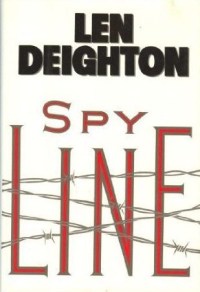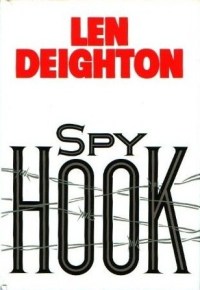Billion Dollar Brain by Len Deighton
 Sunday, January 22, 2012 at 8:53PM
Sunday, January 22, 2012 at 8:53PM 
First published in Great Britain in 1966
At some point in Billion Dollar Brain, the unnamed British spy from whose perspective the story is told says to an American named Midwinter: "You think the best way to contribute to a dangerous situation is to raise a private army out of your profits on cans of oil and beans, frozen orange juice and advertising, and to operate your own undeclared war against the Russians." That pretty well sums up the plot. Midwinter wants to recruit the unnamed British spy to his private army of agents; the Brit plays along to learn what Midwinter is planning. The premise is thin and not particularly credible, but it leads into a fun, well-written story that feels only slightly dated despite its 1966 vintage (other than giving the book its title, computers are fairly peripheral to the plot, fortunate given that they operate as little more than expensive answering machines).
In its depiction of paranoid overreaction to the perceived threat of Communism, Billion Dollar Brain reminds me of Stanley Kubrick's Dr. Strangelove. Kubrick's humor is over-the-top while Deighton's is of the understated British variety -- the film is played for laughs while Deighton's novel retains the elements of a thriller -- but both use satire to make the same fundamental point: "facts are no substitute for intelligence" and all the nefarious facts that could be mustered about Khrushchev's Russia would not have justified the decision to initiate a world-ending nuclear conflict.
Billion Dollar Brain is written with an understated nonchalance, low-key humor perhaps too frequently offsetting the tension of high-stakes espionage. Although it is one of Len Deighton's early novels, he wielded all the tricks in a seasoned writer's arsenal to direct a play in the reader's mind. Dialog often makes the reader picture scenes that are never directly described; non sequiturs force the reader to rethink characters and settings; offhand remarks help the reader imagine the details of a character's personality. The plot takes a couple of perfect twists before arriving at a satisfying conclusion.
Billion Dollar Brain doesn't have the same heft as Deighton's later novels but the story is fun, the characters are quirky, and the writing is so engaging that the novel is of enduring value.
RECOMMENDED
 TChris |
TChris |  Post a Comment |
Post a Comment |  Len Deighton,
Len Deighton,  spy in
spy in  Thriller
Thriller 


